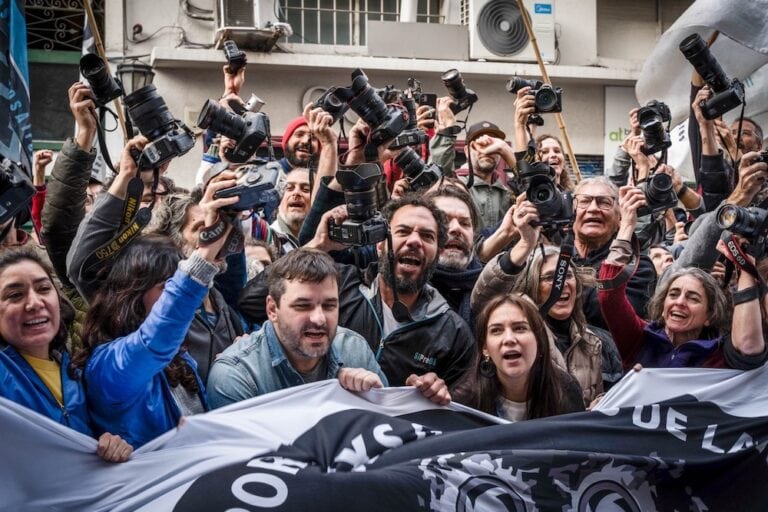(Periodistas/IFEX) – The following is a 6 September 1999 Periodistas press release: **Updates IFEX alerts of 7 May 1999 and 9 November 1998** INTER-AMERICAN COMMISSION SUMMONED ARGENTINIAN GOVERNMENT FOR FREEDOM OF EXPRESSION VIOLATIONS The Inter-American Commission on Human Rights summoned the Argentinian government and the Association PERIODISTAS to a hearing at the Organization of American […]
(Periodistas/IFEX) – The following is a 6 September 1999 Periodistas press
release:
**Updates IFEX alerts of 7 May 1999 and 9 November 1998**
INTER-AMERICAN COMMISSION SUMMONED ARGENTINIAN GOVERNMENT FOR FREEDOM OF
EXPRESSION VIOLATIONS
The Inter-American Commission on Human Rights summoned the Argentinian
government and the Association PERIODISTAS to a hearing at the Organization
of American States headquarters in Washington. During the hearing, the
condition of the press in Argentina will be debated based on three recent
Supreme Court rulings.
PERIODISTAS denounced the Argentinian State because of the Court’s decisions
on the cases presented by: senator Eduardo Menem against the director of the
magazine Humor, Tomás Sanz; judge Omar Jesús Cancela against the actress
Gabriela Acher and the television channel Canal 13; and the Minister of
Interior Carlos Corach against Pagina /12 journalist Horacio Verbitsky.
The Commission set the date for the hearing for Friday 1 October, at 16:45.
The Argentinian government will be represented by the Embassy to the
Organization of American States and Ministry of the Exterior lawyers sent
especially for the case. Vice-President Verbitsky will assist on behalf of
PERIODISTAS. He will receive legal advise from Viviana Krsticevic, the
executive director of the Center for Justice and International Law, based in
Washington. Both sides can also present witnesses, or the opinions of
eminent jurists to support their positions.
A similar legal process initiated by Verbitsky in 1992 resulted in a
commitment from the state to repeal the crime of contempt from the Criminal
Code. The changes were unanimously approved by both chambers of Congress in
1994. The Inter-American Commission on Human Rights further recommended that
other countries in the region make similar amendments. Costa Rica and
Paraguay have already complied with the recommendation.
The Supreme Court condemned Tomás Sanz for publishing an article entitled
“Two Years of Corruption”, which reproduced an investigation published in an
Uruguayan weekly, according to which Senator Menem had deposited a large
amount of savings in a Punta del Este bank. According to PERIODISTAS, the
court inverted the burden of proof by demanding that Sanz prove that the
information is true. This is contrary to the doctrine of real malice,
accepted by the court two years earlier in the “Morales Solá” case. The
decision against Sanz also receded from the “Campillay” doctrine,
established by the Supreme Court in 1986, according to which a person cannot
be punished for reproducing information supplied by another source, and when
that source is expressly stated.
Actress Gabriela Acher and Canal 13 were sentenced because of a humorous
sketch about the conditions faced by women in Argentinian courts. In the
sketch, a woman surrounded by children demands food in a courthouse and,
after a long delay, is given a bag of potato chips. A sign on the courthouse
door reads “Doctor Cancela, judge.”
Corach sued Verbitsky because, in his 1991 book “Robo para la Corona,”
Verbitsky affirmed that the current minister pressured judges on behalf of
President Carlos Menem and threatened them with a political trial if they
did not acquiesce to official desires. In the eight years since this
occurred, the court has not allowed the book’s author to present the
evidence he has to back his statement, including the testimony of the judges
that were pressured. A lower court and a Federal Court judge absolved
Verbitsky, declaring that he was not to be blamed for the time that had
transpired. However, the Supreme Court overturned this sentence and ordered
that the trial be restarted, thereby leaving the case indefinitely open.
Buenos Aires, 6 September 6, 1999


